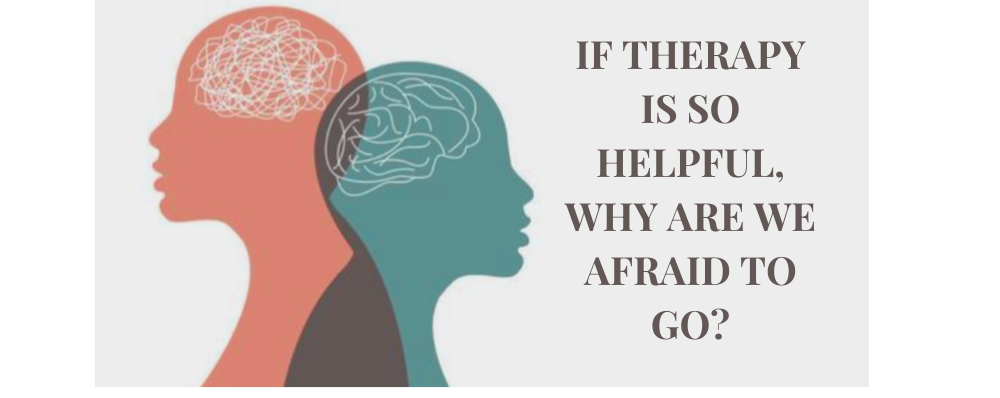Imagine how many people suffer in silence and in fear of being judged for seeking emotional help. Why is struggling alone seen as “strong” but asking for help is seen as “weak”? Well, here’s the answer: society. You’d be surprised by the number of people who consider seeking therapy as being “incapable of solving your problems” or even being “weak”. This issue isn’t necessarily occurring everywhere right now, but many communities and cultural norms accept this. They accept the struggle people face every day to reach out for emotional help even when they need it the most and it just shows how we’ve failed as a society. Removing this misconception would create a healthier community where people would feel comfortable talking about personal problems, this needs to become reality.
Theoretically, therapy is defined by Psychology Today (PT) as “the use of physiological methods, often involving regular personal interaction, to help individuals change behaviors, increase well-being, and overcome problems.” Personally, I would define therapy as an eye-opening experience that reveals emotions, understands your thinking patterns, and encourages self-discovery. There are different types of therapy that ultimately lead to the same goal which is improving how the mind works, so why are so many people against it?
Here’s why: People fear being judged by friends, family, and many other people around them. However, therapists are for the good of YOUR mental health and not anyone else’s. Simply seeking therapy should not be a factor to judge but one to admire. According to the American Federation of Teachers (AFT), therapy improves communication skills, helps resolve problems, treats mental health conditions, increases self-awareness and so much more. With all these benefits placed right in front of you, why reject it? Why judge people for it? Organizations like the National Alliance on Mental Illness (NAMI), provide educational support and advocate for families. Why would an entire organization go through this if Mental Health therapy wasn’t important?
Many communities culturally believe therapy shouldn’t be normalized which is morally wrong. The Exploration Counseling and Consulting company (LLC) believes that “when we over-normalize mental health without having sound educational and awareness tools we can start shifting to the belief that everyone has a clinically diagnosable mental health issue. People diagnose themselves based on a Google search and then say things like ‘I’m so bipolar’ or ‘I can’t do (fill in the blank) because I have anxiety’ Then we need to reconsider how we are looking at mental health. We don’t self-diagnose diabetes or hypertension, and we shouldn’t self-diagnose depression, anxiety, bipolar, or any other mental health condition,” which I completely disagree with. I believe therapy should be normalized not because everyone has a “diagnosable” mental health illness but simply because mental health needs care. Over-normalizing mental health conditions without proper education can, yes, lead to misconceptions, however, that proves why professionals are important. Therapy helps people endure regular stress and makes sure every problem is addressed and not looked over. There are a lot of assumptions about therapy when all it really does is help with emotional well-being and teach people how to be self-aware of their thoughts. Normalizing therapy would reduce the number of people labeling themselves with disorders and would help people work on personal growth and ways to cope, even if a diagnosis is or isn’t involved.
I personally come from a community that believes in a major misconception of therapy being for people with a mental health diagnosis. Research conducted by the National Library of Medicine to understand the reasons behind why the mental health stigma in Nigeria is so strong shows how “the co-existence of spiritual beliefs and biomedical and psychological models of mental health is a key factor to consider in the design of effective stigma-reducing interventions among university health students in Nigeria.” This study shows how therapy is rejected by communities in Nigeria and is seen as a cultural norm due to spiritual beliefs and much more. Not normalizing therapy due to spiritual beliefs is a controversial topic however, I believe spiritual beliefs should not interfere with normalizing therapy simply because mental health care and spirituality have very different roles in helping a person’s well-being. Spirituality can provide a sense of connection and sometimes closure, however, this doesn’t replace the experience that can be given by professionals and what therapy has to offer. As we don’t rely solely on faith when going through physical illness, we shouldn’t easily dismiss therapy only based on spiritual beliefs. Therapy provides healing and growth as well as helps people process their emotions. Regardless of belief systems, normalizing therapy helps people get the help they need without guilt or unnecessary stigma.
I’ve gone on and on about the importance of normalizing therapy, but how do we actually implement this? According to LifeSpring therapy, “One of the best ways to normalize therapy is to encourage open conversations about it. Educate the public” By educating people about the benefits of normalizing therapy and how it helps reduce stigma, it can help to normalize seeking therapy. “Challenge negative stereotypes”, the stereotypes around therapy and mental health are a major reason why seeking therapy is criticized, people need to realize that therapy is a step towards taking control of your mental health. “Normalizing therapy can be achieved through media campaigns, public speaking events, and community outreach initiatives.” Increased accessibility to awareness of the importance and benefits of therapy would reduce the stigma and misconceptions of therapy as well as promote mental well-being and make it as regular as a physical check-up. Sharing experiences, advocating for normalizing therapy, and taking therapy as more of an accessory to help with mental health would create a society where therapy becomes a regular part of life.
Thankfully, The Village School is a community where feelings can always be freely expressed without feeling judged–feelings aren’t compressed but rather talked about. Changing the way most people view therapy is about modifying society and its stigmas to one that believes therapy and mental health should be valued. People shouldn’t suffer in silence because they fear being judged by others, and no one should be ashamed, especially for simply seeking help. Being strong isn’t about going through your problems alone but about how you go about them. Normalizing therapy creates this whole new world that embraces the well-being of mental health, where people would feel understood and not just dismissed or overlooked. It’s about time to reduce the stigma around mental health and create a society where seeking therapy isn’t “weak” but is the crucial step to improving self-awareness of emotional health.
Resources
https://www.riseforfamilies.com/parent-resources/let-s-talk-about-normalizing-therapy
https://www.aft.org/news/12-rewarding-benefits-therapy
https://www.explorationcounselingco.com/blog/the-downside-of-normalizing-mental-health








